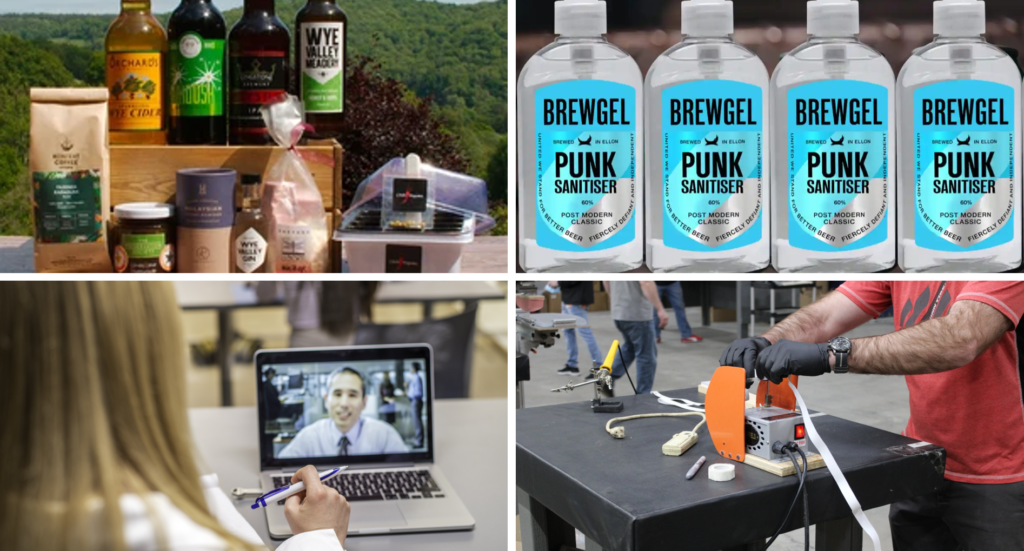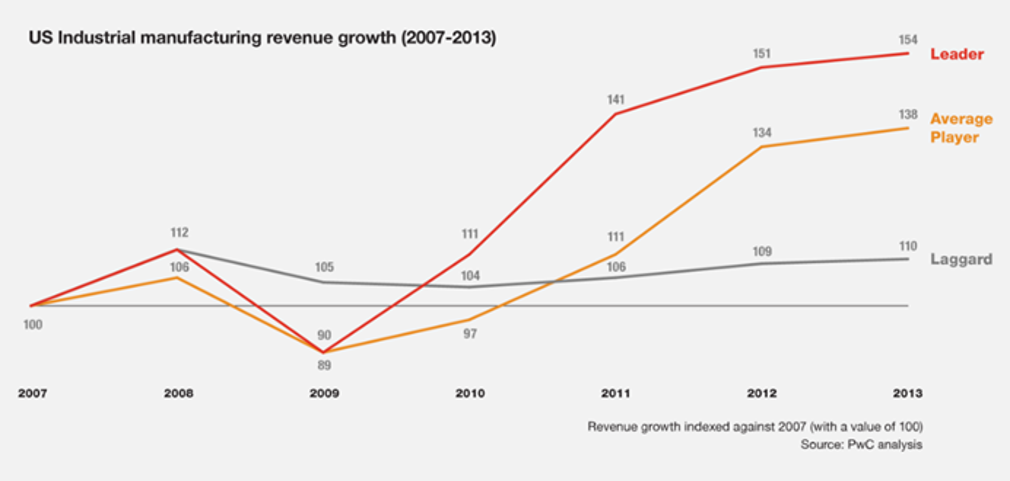3 Questions to help you choose your best path to recovery
Covid-19 has had a seismic effect on everything. It has affected individuals, businesses, and wider society. Businesses have survived only due to the agility, ingenuity, and creativity of their leaders and employees. In many cases this has only been possible with financial support from government, which will soon begin to taper off.
For many businesses surviving the Lockdown has been a real achievement. Sadly, now is not the time to be complacent. To continue to survive and prosper requires leadership and action. Many businesses will now need to consider how they build a sustainable, resilient re-start plan for their business to ensure their continued survival and prosperity.
This blog examines the evidence for such action, despite current uncertainties. It reviews:
- recent examples from Lockdown
- evidence from other businesses that have had to make a similar change of course
- results of a PWC study into why some businesses survived the last Recession better than others
As we begin to return to the new Normal, it points to help available to support businesses as they act to Build Back Better.
Time to Pivot into new emerging opportunities?
For business this may require revision and change to pre-Covid-19 business strategies and plans. The speed of the onset of the virus and its impact have catalysed impressive levels of agility. Many business and public sector organisations quickly pivoted their operations in a new, often quite different, yet positive direction. 
These rapid changes were motivated by a desire to ensure the continuity of their business, to maintain their commitments to their customers and their contribution to wider society. These shifts in strategy have included:
- Breweries and distilleries converting their production from beer or spirits to the production of hand sanitiser[1].
- Small co-operatives of artisan suppliers have collaborated to create new drive through distribution centres that are safe and easy for customers to access.[2]
- GPs have switched to move from face-to-face consultations to delivering their service and advice to patients online.[3]
- Formula 1 teams and sportswear manufacturers switching their production to ventilators and PPE.[4]
Some of these examples have provided their business with a short-term fix in the Lockdown. Others have discovered new ways of working and markets that have increased the resilience and sustainable profitability of their business.
A creative and well executed pivot in strategic focus can offer a new path to recovery
Making a pivot, although scary and often borne out of adversity, can be hugely positive for a business. There are lots of examples from history of companies that have made a shift in direction and discovered success. For example:
- Avon started out life selling books to customers via a door to door sales team before switching to more profitable cosmetics and toiletries.
- Flickr evolved from being an online role-playing game that allowed photos to be shared, which proved so popular, they pivoted their focus onto making this their core business.
- HP commenced life as a manufacturer of specialist instrumentation and data collection devices, before realising that it could have a bigger opportunity selling the machines that analysed the data that was collected.
- Starbucks began as a maker of coffee machines and selling coffee beans before switching to making a morning brew for all.
- Twitter started out life as a podcast discovery service business, before discovering microblogging.
These businesses demonstrate that with creativity and reframing of customer needs, it is possible for businesses to not only survive, but to pivot in a new direction and to prosper. The agility shown by these organisations offers positive examples that other businesses can emulate.
In most instances, this agility was made possible by the leadership taking important time away from the day to day challenges of their business. Working with their key team members away from day-to-day operational challenges, business leaders were able reflect, assess and then act to re-deploy resources quickly. As we all move out of Lockdown operational activities and priorities will once more come to the fore. However, the need for agility remains as important as ever and being able to quickly assess options objectively and thoroughly will be key.
Can your business use its Lockdown experience to discover its path to recovery and to Build Back Better?
In reflecting on these examples, business leaders may start to uncover new opportunities that are set to grow in the Build Back Better economy. They may wish to consider answers to these three questions relevant to this agenda:
- How can my business contribute and play a leading role in a “Build Back Better” recovery?
- Could our current products and services of the business benefit from re-positioning? Can they be re-applied in growing markets, such as the new niches that will emerge in a net zero economy, as the UK Government rolls out its plans for a green recovery to “Build Back Better”?
- Can our business offer new value in helping other businesses to respond to their growing sustainable business challenges by improving positive environmental or social impact?
Recent history suggests good fortune favours the brave
Speed of response and agility is vital to businesses that wish to succeed after a crisis. Research by PWC[5] from the last recession following the Global Financial Crisis (GFC) of 2008, showed that early responders, who acted with agility fared best in the post crisis economy.
Their study showed that companies that emerged from that recession strongest (Leaders), moved faster and more decisively during the recovery phase. In contrast businesses (Laggards) that did not take early action, preferring to wait until there were clearer signs that the crisis has passed, were too late to gain benefit from the recovery that followed.
Leaders took early action increasing capital expenditure by 27% and invested in distressed companies or suppliers, resulting in better growth rates (16% than their peers). This research is summarised in the graphic.
Find out more about how you can discover your best path to recovery
The Lockdown has accelerated several key strategic trends. The good news is that these factors are driving a wide array of opportunities in all sectors.
Cambium are sustainable smart innovation experts with over a decade of experience of helping organisations large and small to pivot into sustainable innovation markets. We have spent much of the Lockdown researching and analysing the impact of Covid-19. This work has provided us with important new insights. These are now available as part of a virtual support package, that also includes help for your business to discover its best path to recovery.
This programme helps you to quickly develop a Pivot to Prosper plan for your business. This support is delivered to your business safely, conveniently and cost-effectively. The service is provided at a cost comparable with a typical “away day” convened to consider and determine the best path to recovery.
Find out more about how we help you discover your best path to recovery
Thanks for taking the time to read this article. If you have any question on the article or about our services, we would be delighted to have a chat. Please contact us at info@cambiumllp.com
References:
[1] https://www.theguardian.com/business/2020/mar/18/brewdog-begins-making-hand-sanitiser-shortages-uk
[2] https://www.humblebynature.com/our-news/wye-valley-producers/
[3] https://bit.ly/31FmON8
[4] https://www.nytimes.com/2020/04/07/sports/formula-one-bauer-coronavirus-ppe.html
[5] https://www.pwc.com/us/en/library/covid-19/manufacturing-operations-strategy-coronavirus.html









